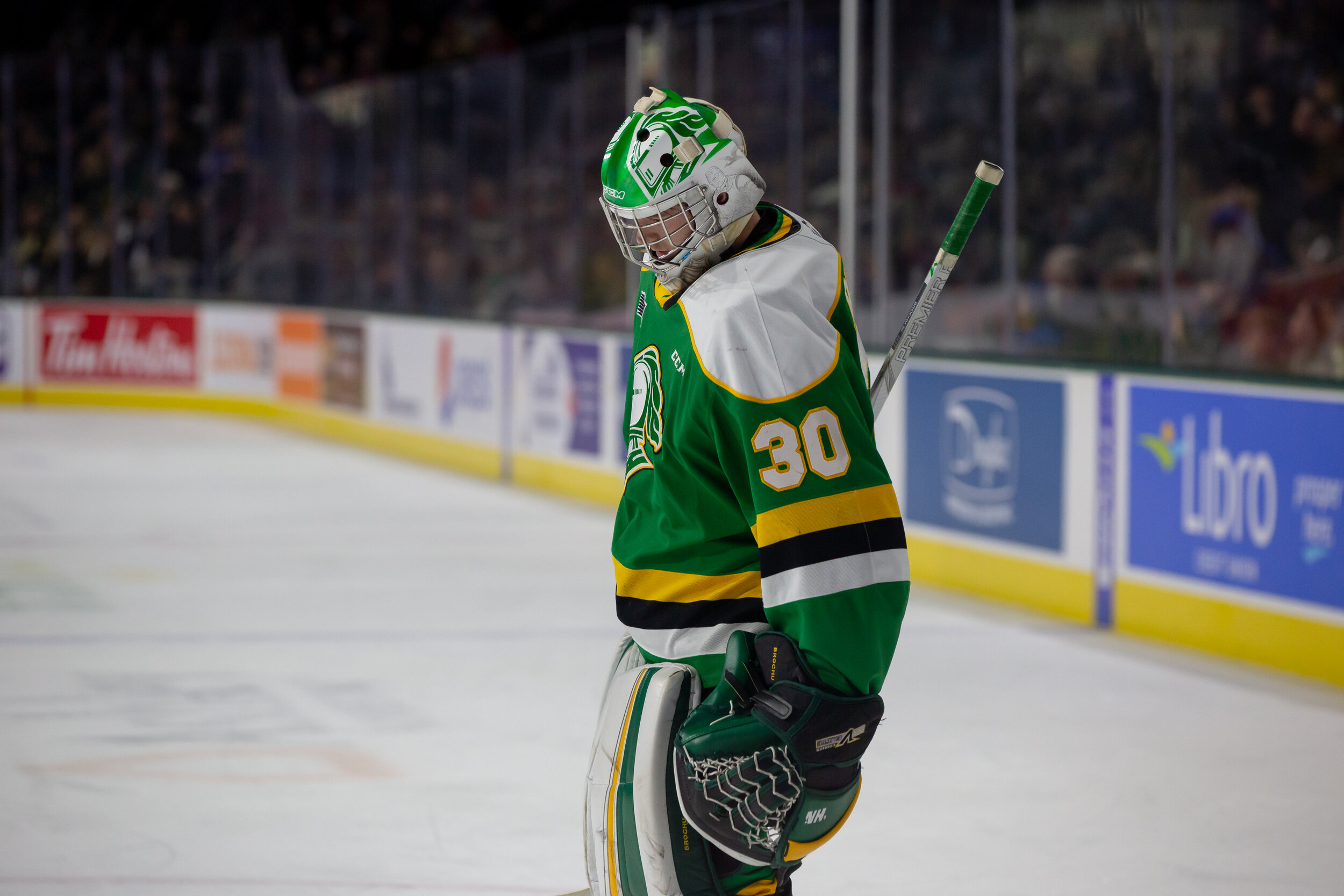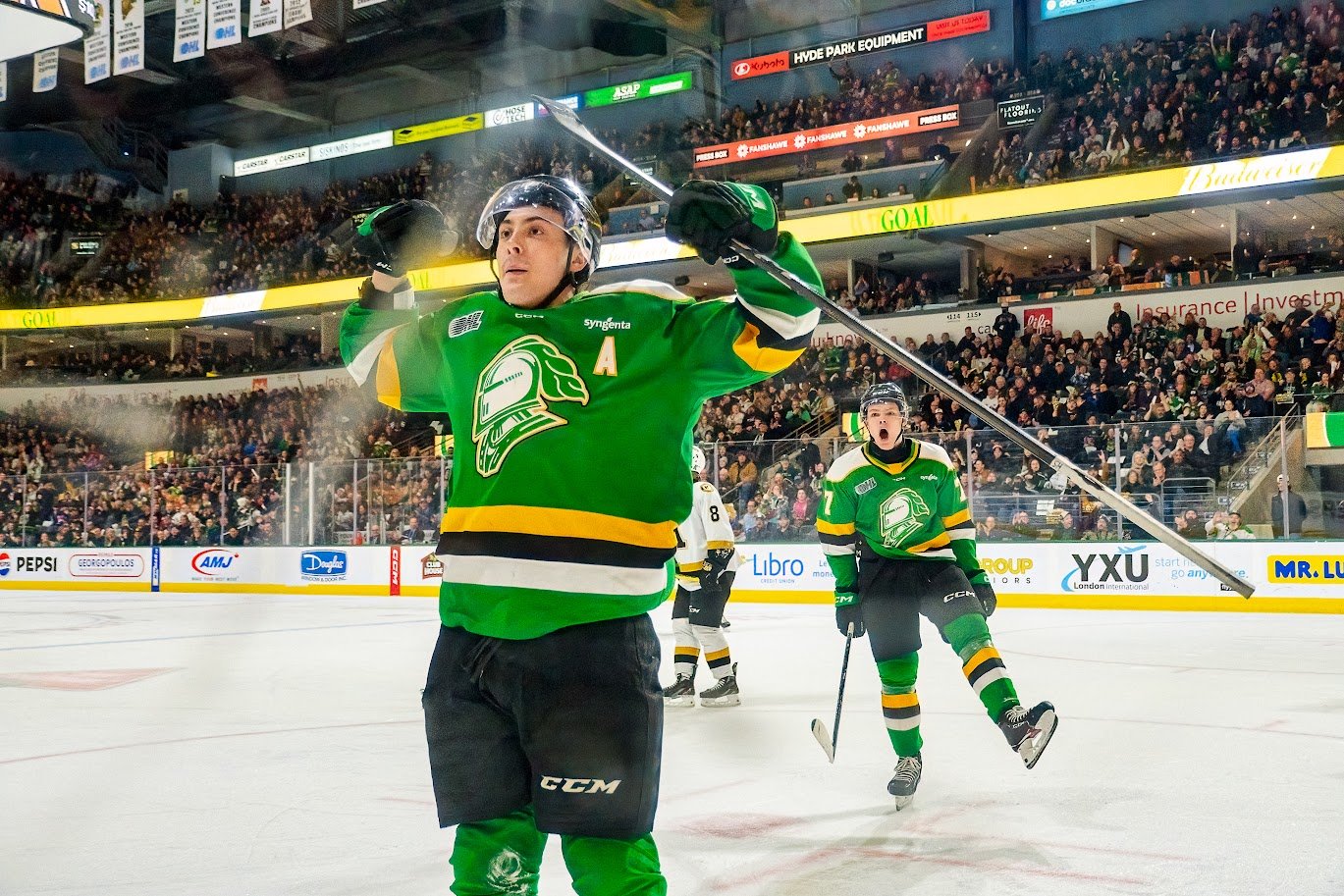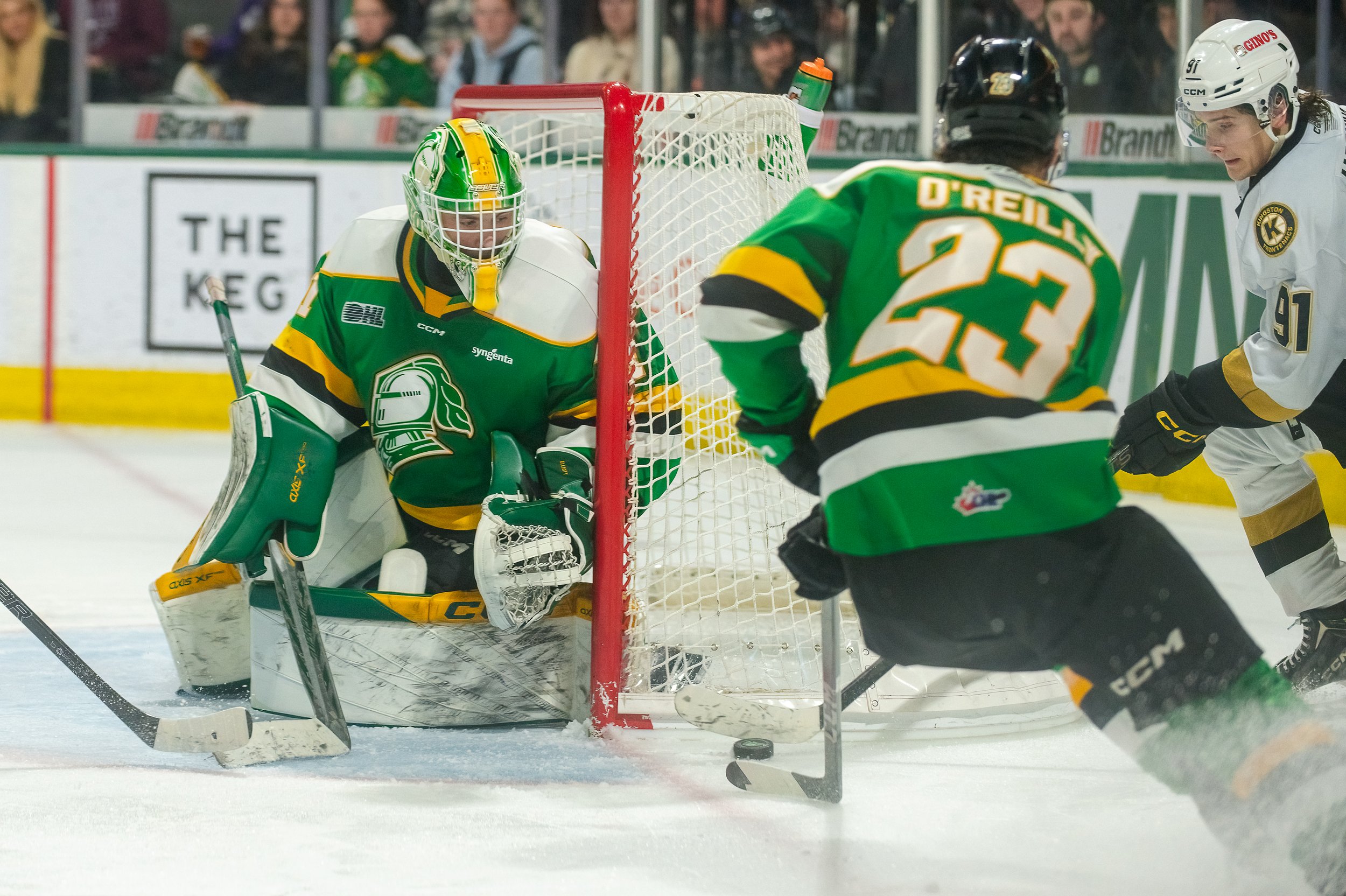Brochu’s mental training setting him apart
Brett Brochu’s routine, apart from his daily physical regimen, includes cognitive training that has helped elevate him to NHL prospect.
(Photo: Giant Creative Inc.).
Brett Brochu, Tilbury native and London Knights record-setting goaltender, is fond of the phrase: “dialed-in.”
Whether he’s dialed-in pre-game, dialed-in at puck drop, or dialing-back-in after a goal, Brochu knows that mental toughness is what separates him from elite junior goaltender to NHL prospect.
“It’s the way I was brought up and taught by my dad,” Brochu said by phone a few hours before hitting the ice at Knights training camp earlier this fall. “Even in minor hockey, I was always dialed-in, intense, and now I’m used to it.”
No more mentally taxing sporting position than the hockey goaltender. We see the clips. Goalies sitting alone in the stands, or on the bench hours before the game, eyes scanning an invisible puck on an invisible stick. In the dressing room, towel over their heads – Brochu’s preferred pregame focus ritual – or jump squatting and cartwheeling like one of Brochu’s heroes, Marc-André Fleury.
Modern goalies like Brochu have uploaded into their brains some of the most cutting-edge mental training known to man. Known as cognitive perceptual training (CPT), most modern elite level goalies will have encountered some type of mental training during their development. In fact, CPT is employed by the US Navy SEALS in their training and has been adopted by many progressive professional sports teams. If advanced analytics gets most of the attention for revolutionizing modern sports, CPT is playing just as important a role behind the scenes.
(Photo: Giant Creative Inc.).
Simply put, CPT involves sharpening a series of sensory perceptions – such as peripheral vision, fast moving object visualization, depth perception, and hand-eye coordination. As well, CPT focuses on four areas of holistic training: physical (flexibility, strength, cardio); technical (puck handling, positioning); tactical (hockey IQ, anticipation); and mental (breathwork, coachability).
It may sound complicated, but it’s quite simple. Tracking the flow of a game, reading a play, anticipation, and responding to mental and physical failure are skills that can be sharpened and strengthened – just like a muscle. In the CPT world, experts love to use Wayne Gretzky as the prime example of how mental awareness and game tracking ability can trump pure, physical strength. For Brochu, his cognition training and game prep begins days before puck drop and is an ongoing process.
“It really begins on Monday by eating healthy, prepping the body, watching videos, tracking mistakes and successes,” Brochu said, adding, “envisioning success is huge. If I don’t tick off these boxes (healthy eating, puck tracking, etc.) I won’t feel comfortable.”
Brochu talks about “clearing the mechanisms.” In goalie-speak, and in CPT, this means erasing, blocking, and removing everything that is outside of one’s control. It means simplifying bodily movements and slowing down the thought process, focusing on puck tracking, head trajectory – the effortless-looking skills that make elite goalies appear calm, their movements smooth and unhurried.
“With Carey Price, it’s the way he responds to a goal. He’s calm and consistent and has a routine,” Brochu said. “And (Andrie) Vasilevskiy, his losses are usually followed by a win (in last year’s playoffs, four of Vasilevskiy’s five shutouts came after tight losses). Teams play off their goalie’s confidence. That’s why the Canadiens made that playoff run last year. They trust Price.”
The trust that Brochu talks about reveals itself in many nuanced ways during a game. Offensively, players will take more risks if they trust their goaltender. They’re more likely to respond positively after a goal because they know the dam won’t break. Players practice against their goaltender, too. A dialed-in goalie at practice who stops everything reinforces this trust.
For Brochu, his success is in the mental process. He set the OHL rookie record with 32 wins in the shortened 2019-20 season. Last year, as an 18-year-old, he became the youngest player in Wilkes-Barre/Scranton franchise history when he saved 31 shots in a loss. He was invited to Hockey Canada’s World Junior summer camp near Calgary with Knights teammate Luke Evangelista. And he skated with other NHL newbies at the Pittsburgh Penguins rookie camp. Brochu knows that hockey success, especially as a goaltender, can be fickle. That’s why he’s banking on his mental toughness and grit to see him through.
“I have a lot of fun playing hockey,” he says. “I take it all very seriously because I know that it’s always more fun if you’re winning.”
***
Q & A with Brett Brochu:
You’re the coach and you have one game to win the Stanley Cup. What goalie do you choose to play — Price, or Vasilevskiy?
Vasilevskiy, because he’s the best in the game right now and he rebounds so well to a loss or a goal. He’s also a Stanley Cup champion (and recent Conn Smythe trophy winner).
Who are the most important people to you in your hockey journey?
My family. They've made some big sacrifices for me and always put my hockey first. But especially my dad. He has gotten me to all of my camps, practices, games and tournaments. He always did research to ensure that I had the proper equipment, nutrition, guidance, and mentoring.
What colour tape do you use?
White tape because I use a white stick and it matches better.
Out of all the equipment a goalie wears, what is the most important?
For sure the helmet because it protects the most important part of your body.
Who would you rather face: McDavid on a clear breakaway, or Matthews in the slot?
Mathews in the slot because McDavid is pretty crazy on breakaways. His speed is unbelievable.











Knight Watch: After sweeping Owen Sound, London takes on the No. 5 Erie Otters in the second round of the OHL playoffs; Columnist Jake Jeffrey previews the matchup — and predicts the rest of the OHL series …